Photo: UNDP Burundi
Across the world, a vibrant movement of young people is taking on a formidable challenge: tackling climate change and building a resilient future.
The rise of this youth-led movement has played a defining role in accelerating climate action in recent years. With creativity, drive and determination, young people have been advocating for change and implementing it, taking on roles as frontline responders, climate innovators, advocates and peacebuilders. They have pushed for representation at the negotiating table, claiming their voice in defining the future of climate action. And they have fought to bring climate justice to the forefront, side by side with Indigenous Peoples and other vulnerable communities.
Despite these impressive efforts, young people don’t always get the support they need to be able to get involved in climate action. They need more opportunities to build up their green skills, participate in negotiations and policymaking and become the leaders the world needs at this crucial time.
In partnership with the Government of Belgium, UNDP is supporting young climate leaders in Burundi, Guinea, Kenya, Morocco, Panama and Zimbabwe to meaningfully engage in the planning and implementation of national climate plans, or Nationally Determined Contributions (NDCs), and unlock a future where sustainability and inclusivity are central.
Through this work, UNDP is helping young people actively shape how their countries achieve and monitor their climate commitments, while ensuring they have opportunities to build practical skills, drive innovative solutions and unlock their leadership potential.
Growing a new generation of climate leaders in Burundi
In Burundi, a new generation of young climate leaders is taking root. Together with the Ministry of Environment and civil society partners, UNDP helped establish 56 youth climate ambassador clubs in Bujumbura, the country’s largest city.
Photos: UNDP Burundi
These clubs allow students to learn about climate and environmental issues such as plastic pollution, water management and forest conservation through guidance tools and practical materials. Eighteen of the clubs were selected for further training and are now spreading climate awareness across schools, universities and neighborhoods, strengthening grassroots environmental action.
At the same time, a local youth radio station is making climate education a lively community effort through awareness campaigns as well as trivia contests that have engaged over 1,200 participants to test their knowledge about climate change.
Mobilizing youth-led organizations in Guinea
In Guinea, youth-led organizations are mobilizing for national climate action. UNDP’s support enabled a comprehensive mapping of 48 youth-led organizations, which came together to establish a youth community of practice on NDC implementation. This community of practice was launched at the end of the National Climate Camp in Kindia in 2024, where 256 young people participated in hands-on trainings on project planning, environmental leadership and putting NDCs into action.
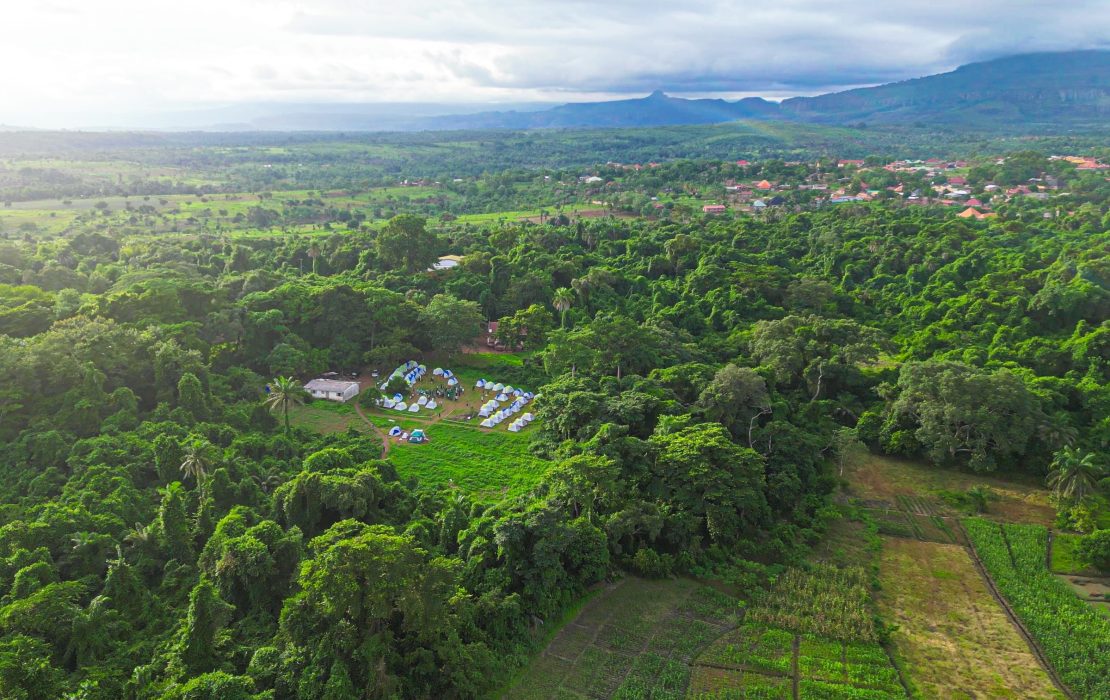
Photos: Bakary Cissoko / UNDP Guinea
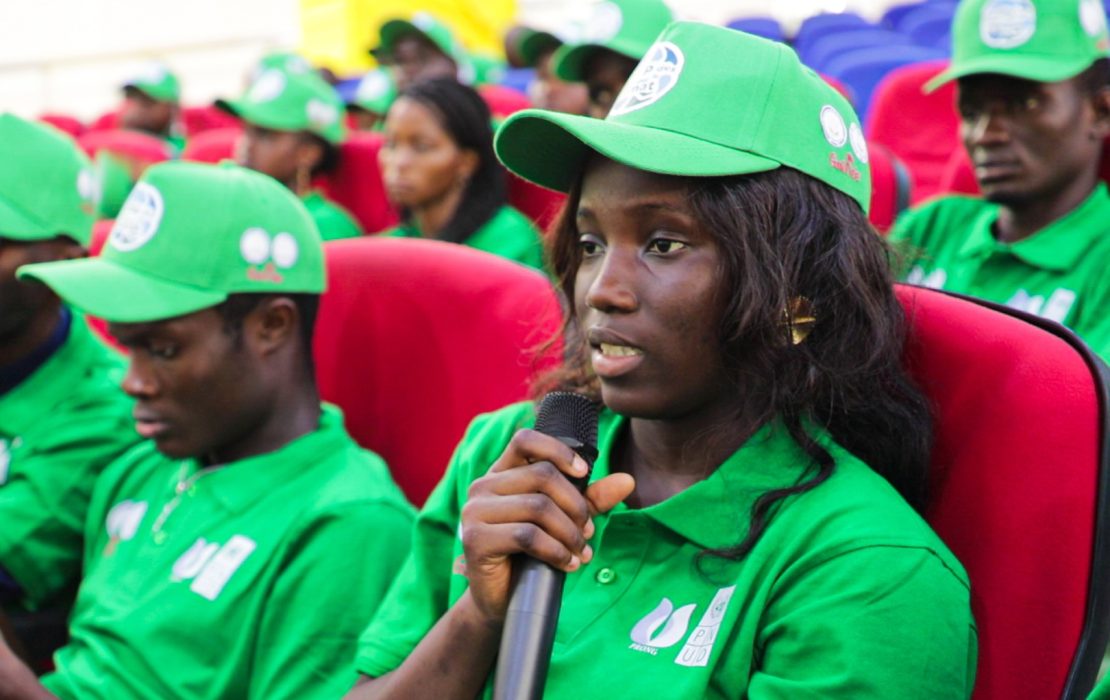
An action plan was then created in collaboration with the government, youth-led organizations, international partners and local stakeholders. This plan focuses on climate resilience, adaptation, mitigation and strengthening legal and institutional frameworks, in alignment with the Paris Agreement.
To keep the momentum going, a mentorship platform is currently being finalized with the Ministry of Environment and Sustainable Development to facilitate exchanges between young people and national experts in support of climate initiatives in the country.
Accessing climate finance in Kenya and Zimbabwe
In Kenya, young innovators are learning new ways to access climate finance. Through a series of workshops in 2024 organized by UNDP in collaboration with UNICEF and the Ministry of Environment, Climate Change and Forestry, young people from 26 counties acquired essential skills related to project development, climate finance and risk management. These new skills are meant to help them design climate projects that are not only environmentally sound but also financially viable and aligned with Kenya’s NDC.
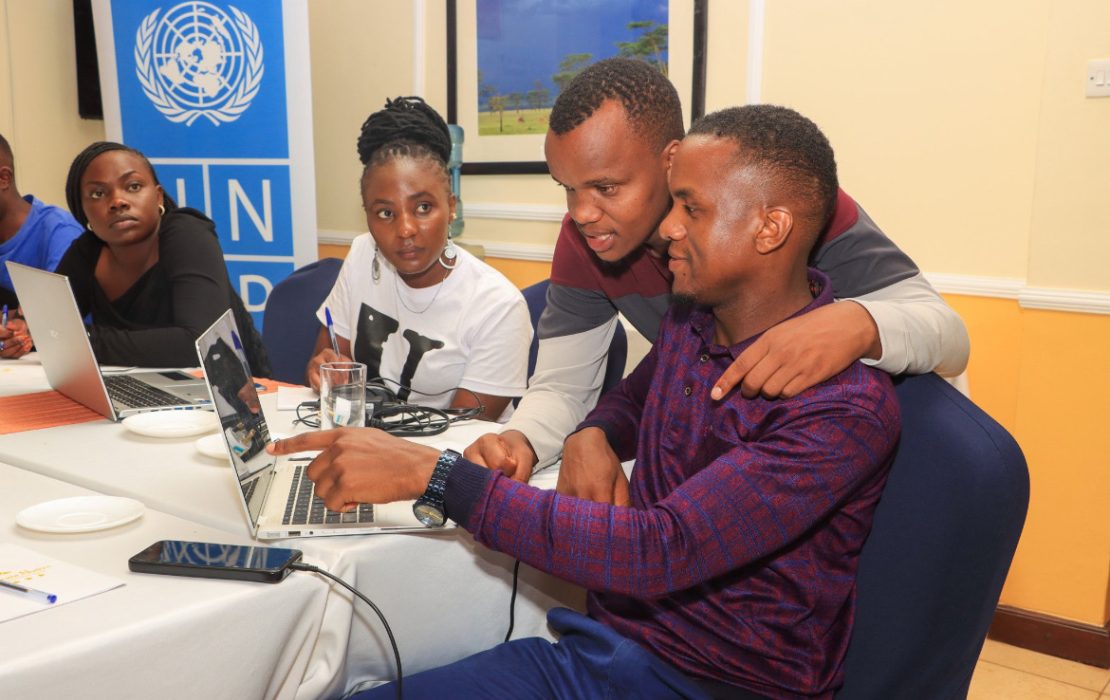
Photos: UNDP Kenya
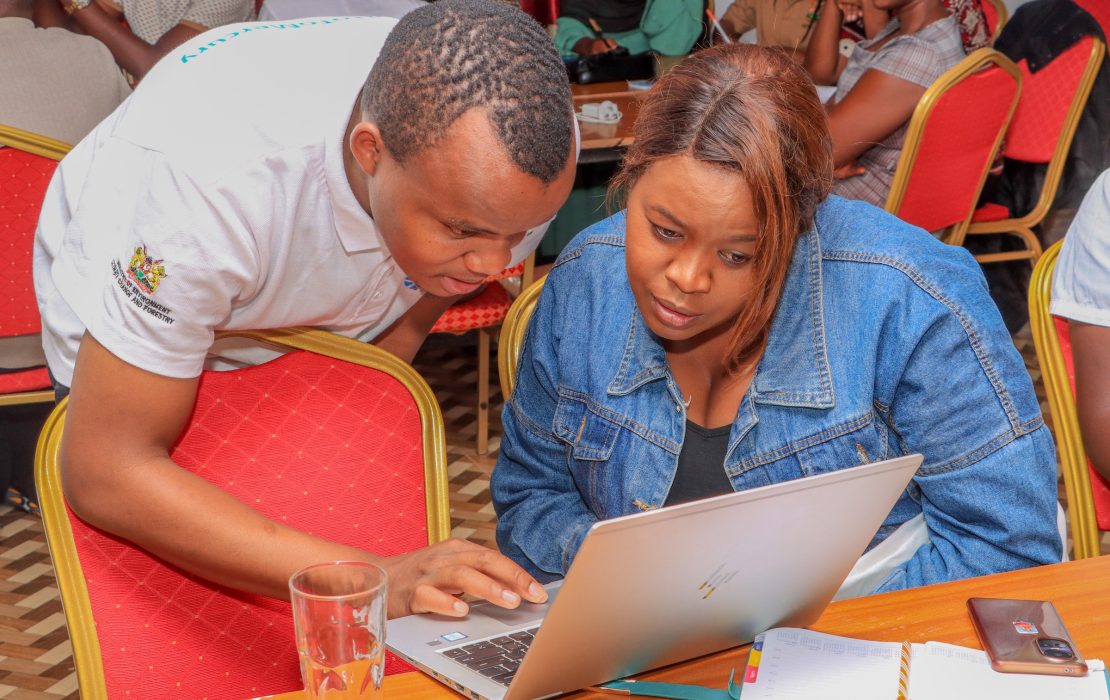
To maximize reach and impact, a train-the-trainer model was employed, grouping the young people into five cohorts that could learn from each other. This approach ensured local ownership, fostered peer-to-peer learning and created a ripple effect of knowledge transfer.
Under this initiative, UNDP also launched a call for youth-led climate solutions. Sixteen proposals were shortlisted and pitched before a panel of experts, receiving seed funding to test their ideas.
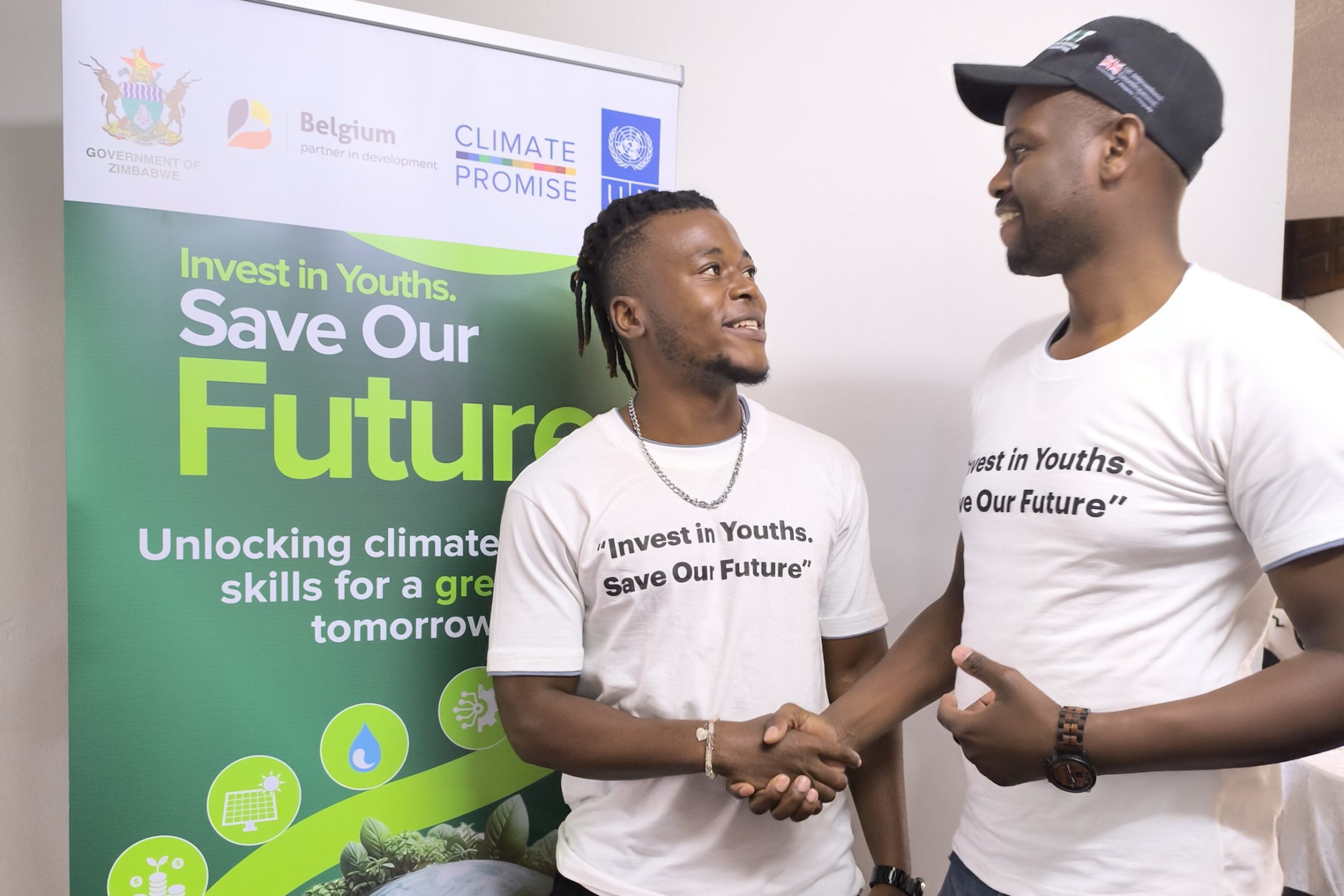
Photo: UNDP Zimbabwe
In Zimbabwe, a new initiative led by the Ministry of Environment, Climate and Wildlife in collaboration with UNDP is helping young people strengthen their skills in climate finance. At a workshop held in Bulawayo in June 2025, facilitated by the Scientific and Industrial Research and Development Centre, over 50 young leaders from across the country had an opportunity to learn more about climate finance and carbon markets, as well as develop and pitch new project ideas. The workshop culminated in the formation of a Youth Climate Finance Alumni Network.
Furthermore, under the same initiative, an online learning platform is being developed to support self-paced learning and mentoring, helping young people develop their projects. The platform aims to help young people find funding for bankable climate projects aligned with national climate policies and frameworks, positioning them as key actors in Zimbabwe’s climate finance landscape.
Championing inclusion in Panama
In Panama, young people are contributing to more inclusive climate policies and actions. With UNDP’s support, more than 50 young people have graduated from the Climate Change Academy for Young Leaders in 2024, having learned about the science behind climate change, mitigation and adaptation measures, and their country’s NDC. In addition, the academy helped them develop their leadership, project management and communications skills.
Photos: UNDP Panama
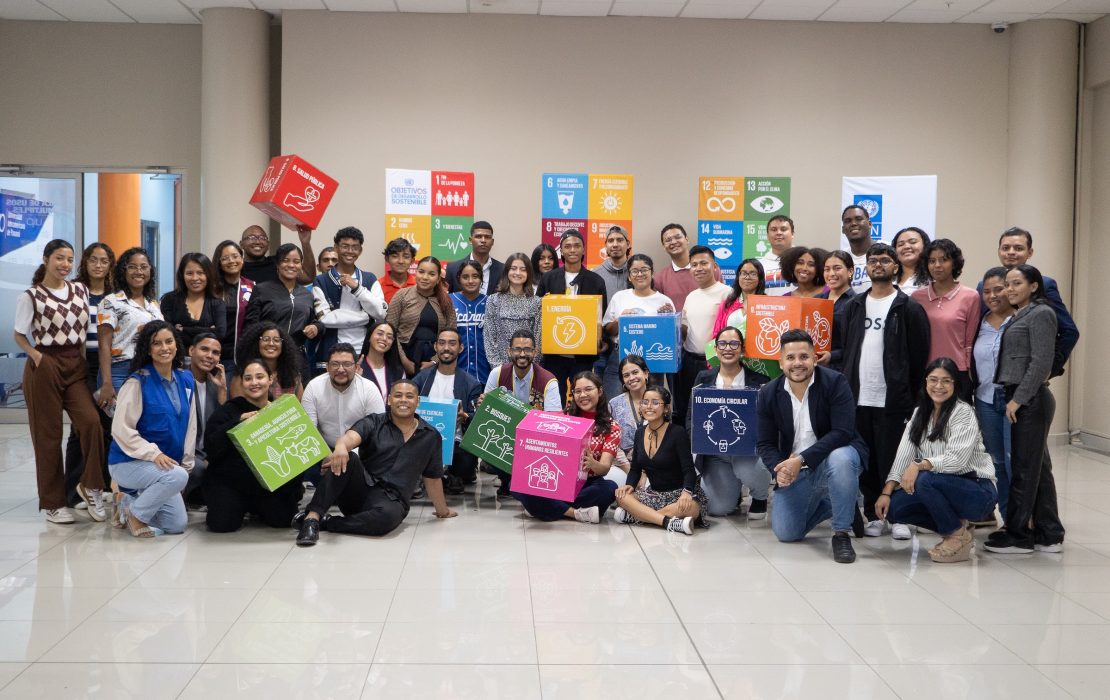
Moreover, in December 2024, 100 young people from across Panama participated in a meeting co-led by the Ministry of Environment, UNDP and UNICEF to discuss the country’s climate goals and make recommendations for more inclusive, gender-responsive climate policies. Indigenous youth and young people with disabilities were encouraged to incorporate their perspectives into the recommendations, which were then presented to the government as part of the NDC revision process in 2025.
In addition, UNDP helped set up a database of over 100 youth involved in climate action that can support NDC monitoring and implementation.
These efforts are empowering a new generation of climate leaders and accelerating progress toward Panama’s climate goals.
Innovating for resilience in Morocco
In Morocco, young people are finding innovative solutions to some of the most pressing climate challenges. A three-day hackathon, organized by the Unleash community in collaboration with UNDP and partners in January 2025, brought together 100 passionate youth from Morocco and across Africa to find innovative solutions for sustainability in water, energy and climate resilience. With mentoring from 10 leading experts, the young participants are now working on implementing their initiatives.
Another hackathon, organized by the Ministry of Equipment and Water in partnership with the Ministry of Higher Education, took place in March 2025, encouraging young people to work on innovative ideas related to water management and climate adaptation. UNDP provided seed funding of approximately US$6,000 to the top three projects.
Beyond technological innovation, 70 young leaders from Morocco and Africa also received in-depth training on climate negotiations. Building this critical skillset prepares them to participate meaningfully and effectively in climate decision-making spaces and future global climate summits, ensuring their voices are heard on the international stage.
Photos: UNDP Morocco
From the vibrant energy of classrooms to the strategic meeting rooms of ministries, these young leaders are claiming their place at the forefront of climate action. With each campaign, contest, workshop and hackathon, they are acquiring critical green skills, fostering climate entrepreneurship and driving a just transition in their countries.
Their message resonates clearly: meaningful youth engagement is a fundamental human right and a non-negotiable strategy to raise climate ambition. It is an investment that yields exponential returns for communities, economies and our planet.
*
The "Empowered Youth for NDC Implementation" project, funded by the Government of Belgium, is implemented under UNDP’s Climate Promise by the Pledge to Impact Programme.
Delivered in collaboration with a wide variety of partners, UNDP’s Climate Promise has supported over 120 countries to enhance and implement Nationally Determined Contributions (NDCs) under the Paris Agreement. Pledge to Impact is generously supported by the governments of Germany, Japan, United Kingdom, Sweden, Belgium, Spain, Iceland, the Netherlands, Portugal and other UNDP core contributors. This programme underpins UNDP’s contribution to the NDC Partnership.
This transformative work, empowering a new generation of climate leaders, has been made possible by UNDP’s continued collaboration with national institutions and youth networks.